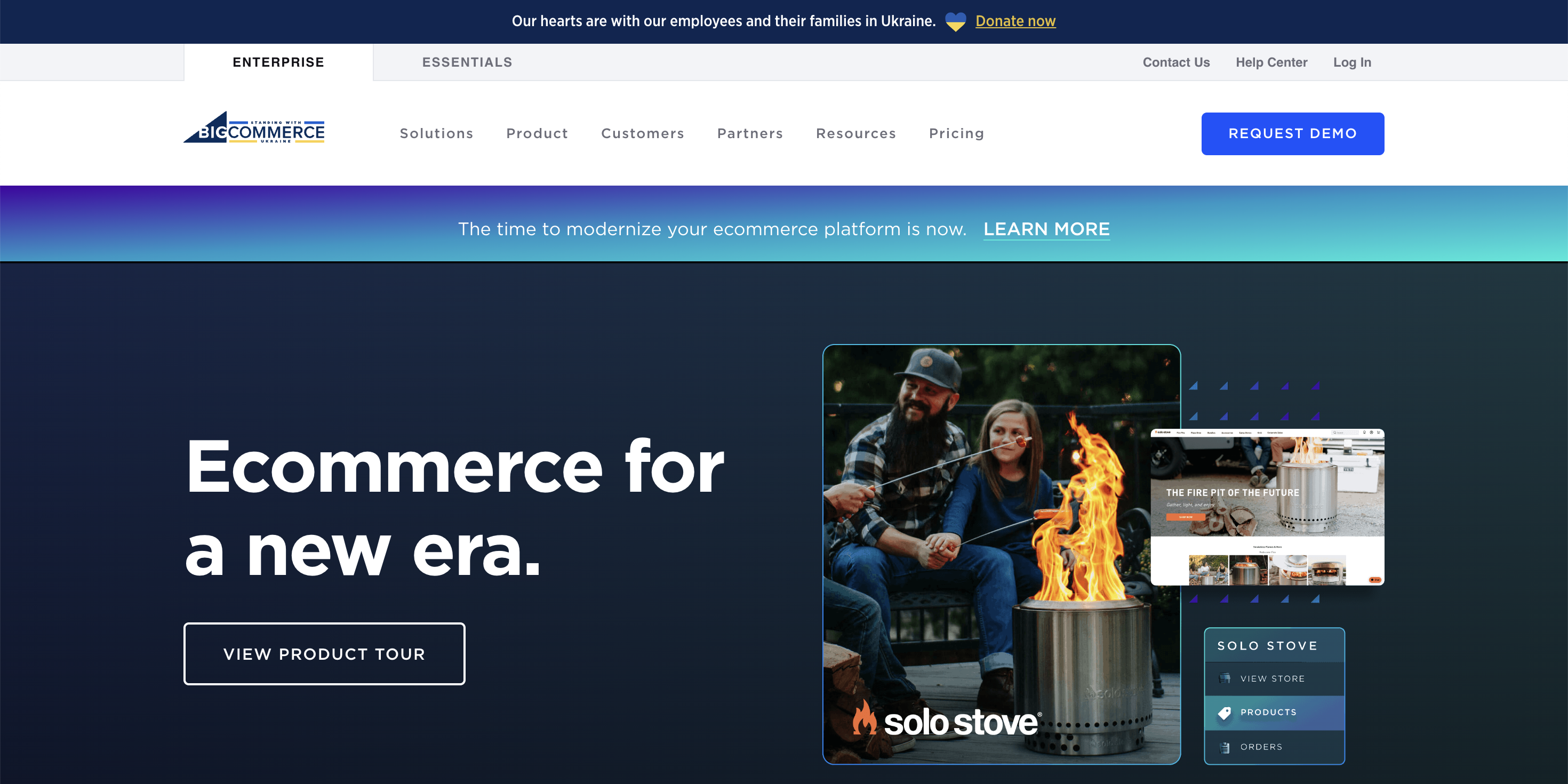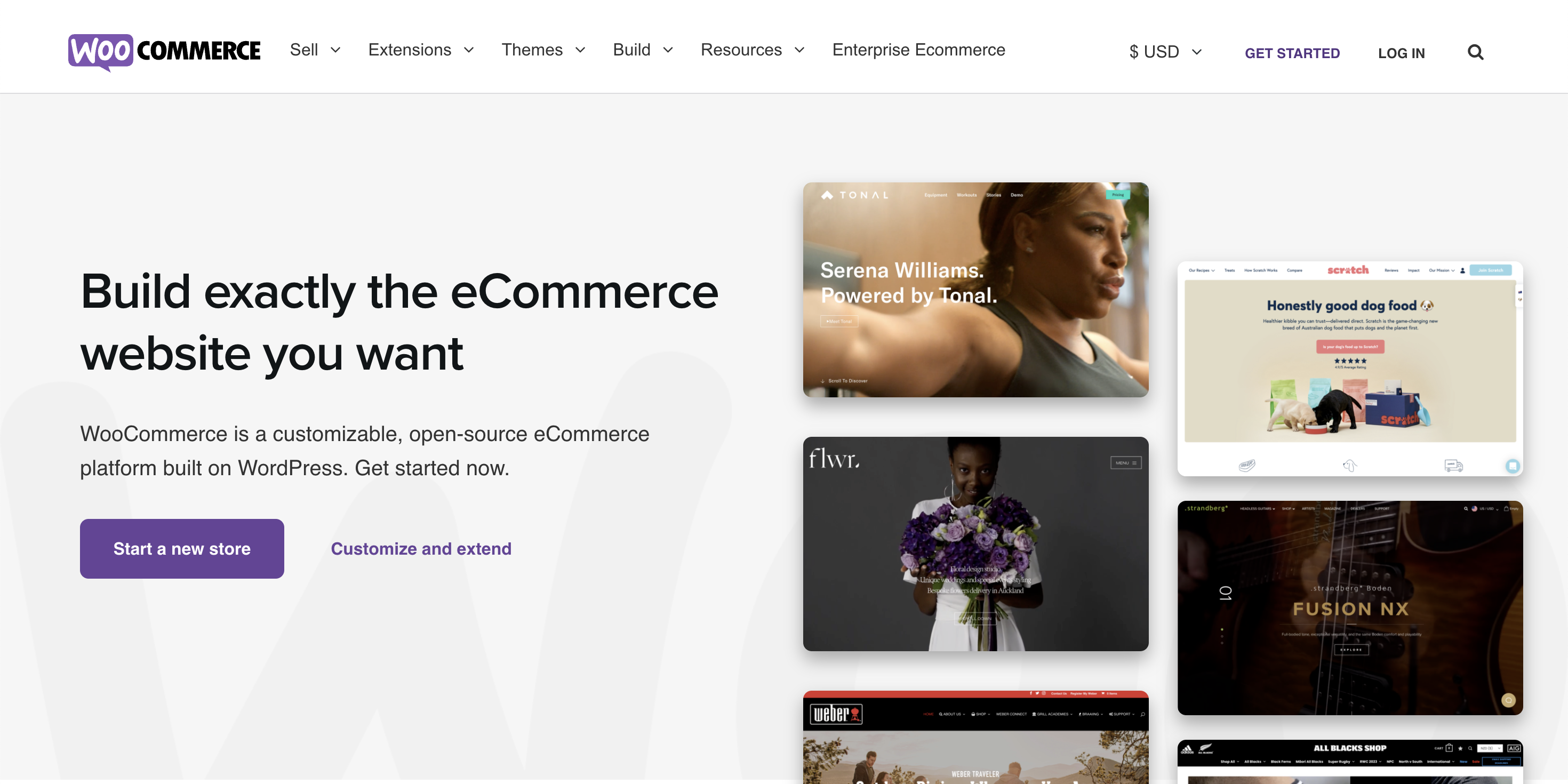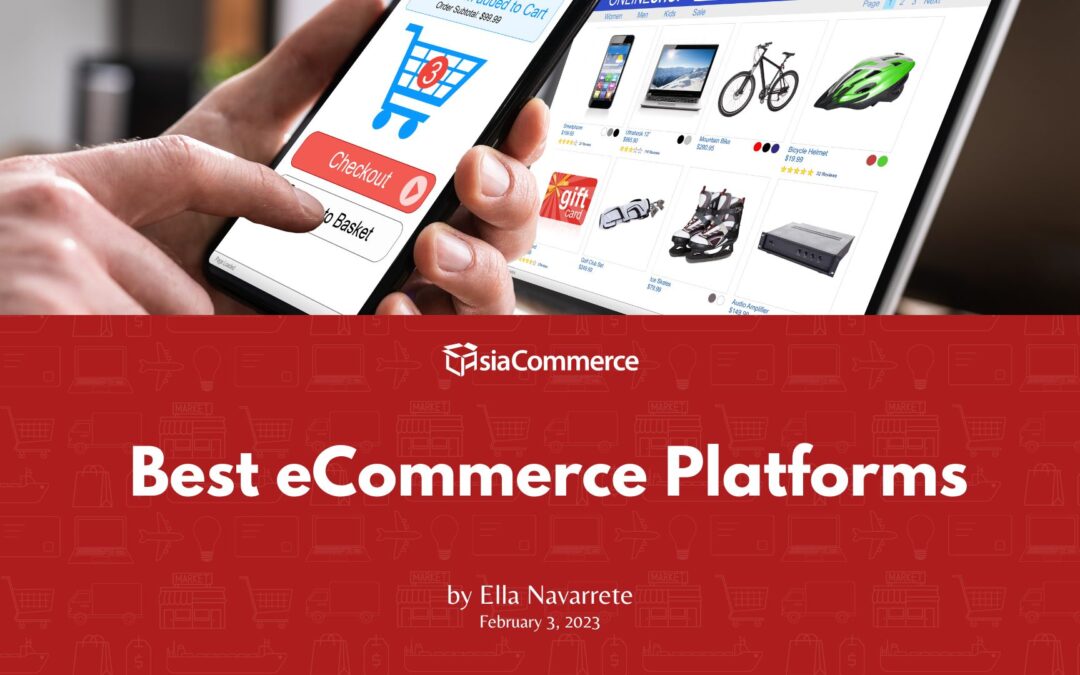Digital commerce is a crucial channel for companies trying to expand their customer base and market niche goods and services. This can create both a website and an online store using internet platforms, which increases brand recognition and product visibility.
These platforms make use of developing technology and communication channels to have significant mobile and social outreach.
To maximize the benefits of eCommerce, the best platforms you must use must match to your own respective business models and growth plans.
To help, here is a quick summary of five platforms that can be used to increase digital marketing activities and sales to assist.
The 5 Best eCommerce Platforms:
Here are the top 5 eCommerce marketplaces you should be looking at:
1. Shopify

Shopify is undoubtedly the most well-known and efficient eCommerce platform out there, and you’re probably already familiar with it. It’s difficult to find a better alternative for most small businesses looking to launch an online store quickly than Shopify, which has been active for more than 16 years and has roughly 4 million stores created on it.
There are a lot of benefits for your store by using the tools available in Shopify. For example, you can:
- Sell products and services both offline and online.
- Sync with numerous social media sites, such as Facebook, Instagram, and Pinterest, as well as online retailers like Amazon.
- Utilize more than 100 payment processors, such as Google Pay and Shopify Payments.
- Complete incomplete sales using the integrated abandoned cart recovery.
- Give consumers discount codes.
- Get SEO assistance.
- Utilize Shopify’s online invoice maker and payment tracking system.
All in all, running an online store using Shopify is beginner-friendly, but is still capable of handling big-time sales. Shopify offers several price categories, with the basic-level pricing starting at $19 monthly. Shopify may be the finest location to begin for businesses or any digital marketing executives that wish to enter the eCommerce market.
Visit their website: https://www.shopify.com/ph
2. Wix

Wix started as a drag-and-drop website builder but has since evolved into a dependable platform for building online storefronts. Due to the lack of abandoned cart recovery and the inability to sell across different channels without the use of apps, it is less flexible than Shopify. It doesn’t offer the same selection of alternatives because it is a website with ecommerce capability rather than one that is designed specifically for this use.
Moreover, Wix is not built to scale. Unlike Shopify, Wix is the ideal platform for simple stores because once the store starts to carry and ship a lot of goods, it becomes more difficult to manage as Wix is not built for this specific purpose.
You have complete control over which elements are most prominent because to its highly customizable features, which let you see how your storefront will seem to clients as you modify. You can incorporate lead capture forms, product videos, and other things.
It is also designed to be mobile-friendly, making it simpler for prospective customers to navigate and buy things.
All in all, the platform provides everything the shop owner would need to conduct eCommerce except for when dealing with high-volume inventory as it may not scale like the other eCommerce platforms.
Visit their website: https://www.wix.com/
3. BigCommerce

BigCommerce is the most suitable option for large and fast-growing enterprises. It is a hosted e-commerce system that may be used as a full SaaS solution or as a shopping cart for different kinds of websites. It frequently receives comparisons to Shopify as a result.
With a wide range of tools and features like promotions, choices for handling returns, coupons, discounts, and more, this platform has powerful store management skills. BigCommerce offers consumers immediate quotes and rate calculators for numerous shipping alternatives.
It is also trusted by enterprises as it as email marketing, and search filters, and allows customers to create accounts and leave reviews.
Your chances of growing your online store into a significant enterprise are increased by the inclusion of everything your ecommerce website needs to be successful. And all of this is possible with plans beginning at $29.95. You might need to work out some glitches, though. For starters, it lacks a mobile app and doesn’t have the easiest user experience to utilize. As soon as you set up your store, you can start making sales, and the platform’s analytics report will show you how well your products are performing. A store overview, real-time reports, customer reports, abandoned cart reports, and merchandising reports are some of the reports available. There are more than 65 payment processing alternatives available to you without any transaction costs.
If you specialize in business or technology, this is a great way to build your business from the ground up.
Visit their website: https://www.bigcommerce.com/
4. WooCommerce

WooCommerce is a WordPress eCommerce plugin add-on. Because it offers the best foundation for their websites, WordPress is the platform of choice for millions of businesses. It is speedy, secure, and easy to use. WooCommerce utilizes the entire stability and power of WordPress to deliver a top-tier ecommerce experience to merchants and their customers. Knowing that consumers don’t need to know how to code or have any advanced technical knowledge to manage and administer an online business will be a relief to customers who aren’t as skilled in IT. WooCommerce will guide you through every step of setup, even if you have no prior experience with WordPress, and have you ready to start selling in no time.
You can sell any kind of product on your website with WooCommerce. Physical, digital, virtual, and affiliate products can all be sold on this platform. A range of different product types, including subscriptions, reservations, product bundles, and so forth, are also possible for you to provide.
Visit their website: https://woocommerce.com/
5. Squarespace

Squarespace should be the platform of choice for the small business that cares about its image because it has some of the best-looking templates available and receives a joint top grade for its superb design flexibility. Squarespace allows you the opportunity to personalize your website however you choose because it is a non-ecommerce-specific website builder with an emphasis on design flexibility and reasonable cost. And that has a big impact. When it comes to presenting a professional image, attracting clients, and closing deals, having an appealing and well-designed website is half the battle won. However, compared to Shopify and BigCommerce, its sales tools are obviously not the finest available and fall well short. For larger enterprises or those with special requirements, Squarespace also provides customized solutions.
Similar to Wix, Squarespacce is enough to get you started and once the store is selling hundreds or thousands off different products, it is better for the enterprise to use an eCommerce platform that is more catered to mature and larger enterprises.
Visit their website: https://www.squarespace.com/
To conclude, here are the key takeaways:
- Shopify – Best All-Around eCommerce Platform
- Wix – Best for Stores with less than 100 products
- BigCommerce – Best for large and fast-growing enterprises
- WooCommerce – Best for WordPress Websites
- Squarespace – Best for targetting a Niche Market and Creative Control
Thus, to choose an effective platform for your business, it is essential to remember that each business is unique, with its own business model, growth plan, and business needs.
You must always keep your customers in mind when choosing a platform for your ecommerce store, and keep an eye on their customer and user experience (with tools like Hotjar ) to ensure you understand their needs, and continue to deliver the experience they deserve.
As long as you establish your business plan and choose the products you are trying to sell wisely, choosing the right platform for your business will be easy.
If you want to learn more about how to build your business, stay tuned for more of our blogs! You can also reach out to us through any of our social media accounts or through our email philippines@asiacommerce.net
